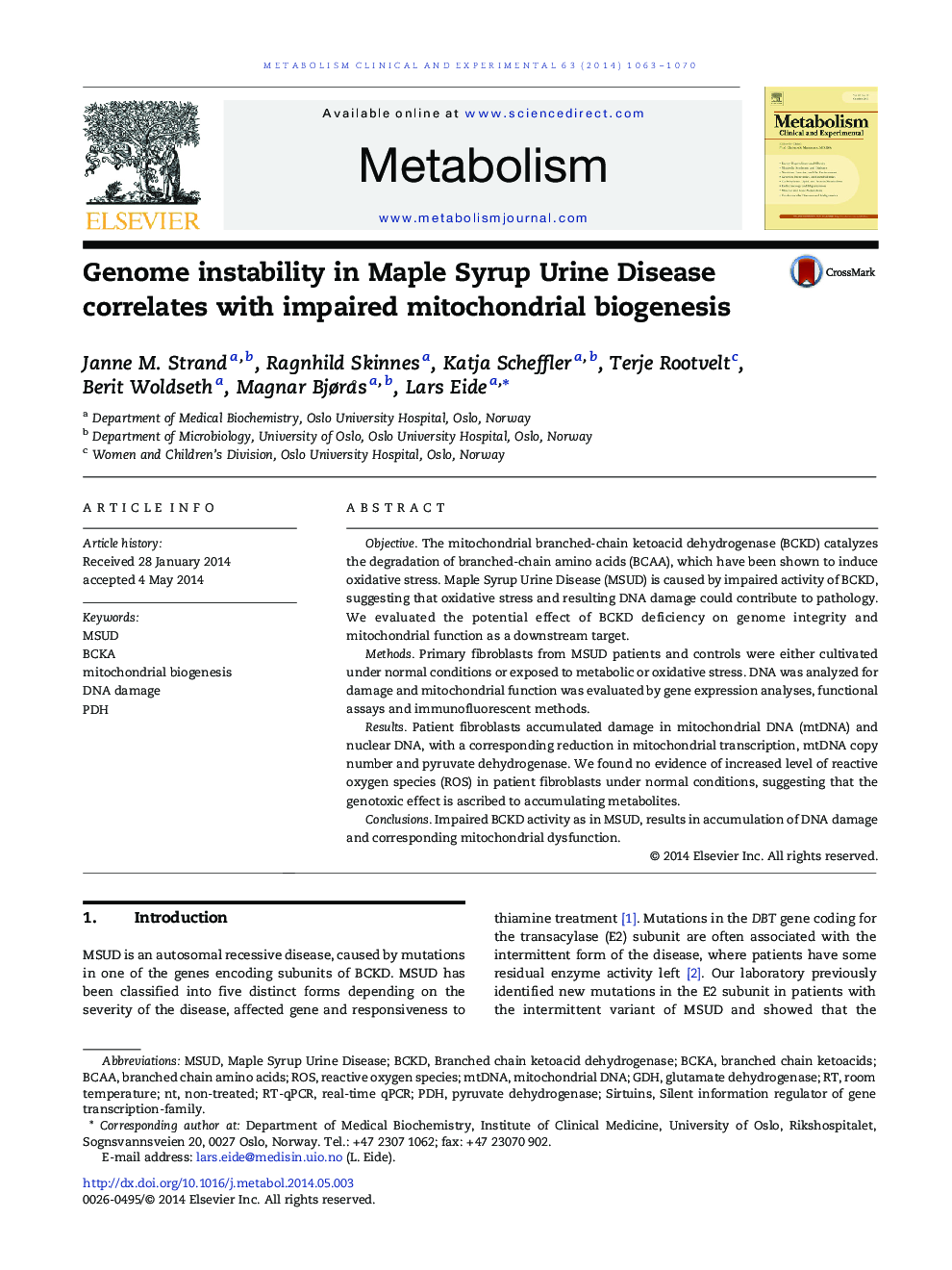| Article ID | Journal | Published Year | Pages | File Type |
|---|---|---|---|---|
| 2805766 | Metabolism | 2014 | 8 Pages |
ObjectiveThe mitochondrial branched-chain ketoacid dehydrogenase (BCKD) catalyzes the degradation of branched-chain amino acids (BCAA), which have been shown to induce oxidative stress. Maple Syrup Urine Disease (MSUD) is caused by impaired activity of BCKD, suggesting that oxidative stress and resulting DNA damage could contribute to pathology. We evaluated the potential effect of BCKD deficiency on genome integrity and mitochondrial function as a downstream target.MethodsPrimary fibroblasts from MSUD patients and controls were either cultivated under normal conditions or exposed to metabolic or oxidative stress. DNA was analyzed for damage and mitochondrial function was evaluated by gene expression analyses, functional assays and immunofluorescent methods.ResultsPatient fibroblasts accumulated damage in mitochondrial DNA (mtDNA) and nuclear DNA, with a corresponding reduction in mitochondrial transcription, mtDNA copy number and pyruvate dehydrogenase. We found no evidence of increased level of reactive oxygen species (ROS) in patient fibroblasts under normal conditions, suggesting that the genotoxic effect is ascribed to accumulating metabolites.ConclusionsImpaired BCKD activity as in MSUD, results in accumulation of DNA damage and corresponding mitochondrial dysfunction.
